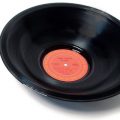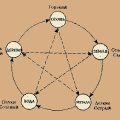Consultant: David Heber, Professor of Medicine and Health, Director of the Center for Human Nutrition at the University of California, Los Angeles.
Problem one, the energy
You've joined the diet with enthusiasm - butvery soon it begins to seem to you that all your energy is spent on fighting weight. You don't want to work, walk, or do housework — your energy is "zero". So that you don’t feel like eating. Reason one.Constant overeating can become a kind of food doping. It excites the nervous system, just as a cup of strong coffee stimulates others. Over time, many get used to it. It is worth cutting down on calories in the diet, and the nervous system returns to a normal, calm state - but along with this, the usual liveliness goes away. Solution. To get rid of the suddenly overwhelming fatigue, you really need to rest more, get enough sleep. Put off things that can wait for now. Wait out this short period of adaptation - and you will again be fresh, energetic and full of strength. Reason two. Another probable cause of weakness, and at the same time headaches in the first week of dieting - a violation of the diet. Breakfast? You can do without it. Lunch? As late as possible. Dinner? It is better to skip it in order to lose weight faster. Without receiving food (fuel) on time, the body cannot produce enough energy, and you quickly get tired. Rare meals also increase appetite. To cope with fatigue, you will have to constantly eat more calories than you save by refusing to eat. Solution. To make the path to the ideal figure shorter, you need to strictly follow the schedule, with at least four stops - for the first and second breakfast, lunch and dinner.
So that you don’t feel like eating. Reason one.Constant overeating can become a kind of food doping. It excites the nervous system, just as a cup of strong coffee stimulates others. Over time, many get used to it. It is worth cutting down on calories in the diet, and the nervous system returns to a normal, calm state - but along with this, the usual liveliness goes away. Solution. To get rid of the suddenly overwhelming fatigue, you really need to rest more, get enough sleep. Put off things that can wait for now. Wait out this short period of adaptation - and you will again be fresh, energetic and full of strength. Reason two. Another probable cause of weakness, and at the same time headaches in the first week of dieting - a violation of the diet. Breakfast? You can do without it. Lunch? As late as possible. Dinner? It is better to skip it in order to lose weight faster. Without receiving food (fuel) on time, the body cannot produce enough energy, and you quickly get tired. Rare meals also increase appetite. To cope with fatigue, you will have to constantly eat more calories than you save by refusing to eat. Solution. To make the path to the ideal figure shorter, you need to strictly follow the schedule, with at least four stops - for the first and second breakfast, lunch and dinner.









